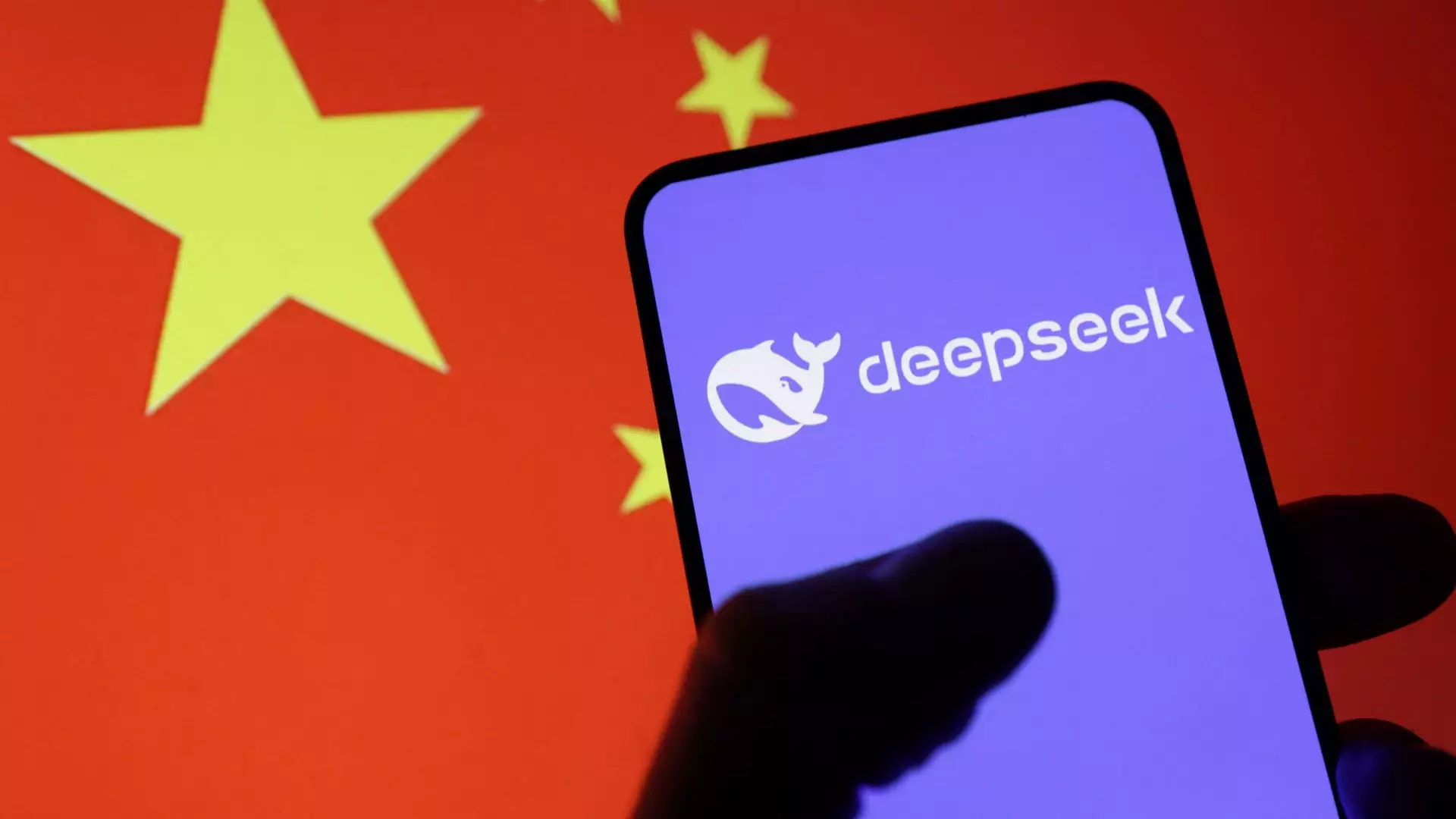The recent emergence of DeepSeek, a Chinese artificial intelligence startup, has generated significant buzz among leading figures in the tech industry, including CEOs from Microsoft, Apple, Meta, and Palantir. With its innovative AI model quickly ascending to prominence, DeepSeek has not only captivated the attention of global tech leaders but has also ignited discussions about the competitive landscape of AI development amidst rising geopolitical tensions between the United States and China.
DeepSeek’s Rapid Ascent and Cost-Effectiveness
In just a week, DeepSeek’s mobile app soared to the top of Apple’s App Store, surpassing established competitors such as OpenAI’s ChatGPT. This remarkable feat coincided with the unveiling of DeepSeek’s R1 model, which reportedly cost a mere $6 million to develop. This revelation has sent shockwaves through the stock market, as shares of American chipmakers like Nvidia and Broadcom plummeted drastically, leading to substantial losses in market valuation. The stark contrast between DeepSeek’s development costs and those typically associated with U.S. competitors emphasizes the intensity of innovation competition in the AI industry.
DeepSeek’s emergence also raises questions about how these innovations will shape the economic landscape moving forward. While some research indicates that DeepSeek’s development costs might be significantly underestimated—claimed to be well over $500 million—it remains undeniable that the tech world is experiencing an upheaval. As AI becomes increasingly central to technology strategies, the race to achieve operational efficiency has now taken on newfound urgency.
As AI gains prominence as a technological frontier, the geopolitical aspect cannot be overlooked. The rise of DeepSeek aligns with a broader narrative of U.S.-China competition in advanced technologies, particularly under the administration of President Trump, who has emphasized the need for American dominance in AI. Trump’s announcement of the Stargate project, which aims to bolster U.S. AI infrastructure through collaboration with firms like Oracle and OpenAI, underscores the strategic importance of this emerging field.
Tech CEOs, while discussing DeepSeek, highlighted the gravity of the situation. Palantir’s CEO, Alex Karp, emphasized the importance of a collective nation-wide effort to tackle the emerging threats posed by advanced technologies falling into the wrong hands. His assertion reflects a growing acknowledgment that innovation must be met with responsibility, urging a proactive stance in securing data, privacy, and ethical considerations as AI capabilities expand.
Responses from U.S. tech leaders regarding DeepSeek’s advancements were varied yet revealing. Apple’s CEO Tim Cook, while recognizing the efficiency of innovations such as DeepSeek’s R1 model, offered a measured response about potential impacts on Apple’s computing costs—indicating a degree of cautious optimism. Cook’s notion of integrating hardware and software to enhance efficiency positions Apple as a strong player in a landscape increasingly influenced by rapid AI advancements.
On the other hand, Meta’s Mark Zuckerberg suggested a more nuanced outlook, downplaying the immediate significance of DeepSeek’s model while emphasizing the complexities inherent in assessing its long-term implications. Meanwhile, Microsoft’s Satya Nadella acknowledged the trend toward lower AI operational costs but noted that the industry’s trajectory appears to be an iterative process of innovation and commoditization.
As the rise of DeepSeek showcases the swift evolution of AI technology, it also brings to the forefront the challenges faced by traditional tech giants. LinkedIn co-founder Reid Hoffman highlighted the necessity for U.S. companies to accelerate their development processes, stressing that while competition intensifies, the American tech ecosystem is far from losing its footing.
OpenAI’s Sam Altman emphasized that the landscape calls for a response, positioning themselves to innovate more effectively in a landscape marked by fierce competition. Altman’s comments advocate for rigorous development aimed at ensuring robust principles underpin AI technologies, aligning with the U.S. focus on building democratic and ethical frameworks.
The masterful unveiling of DeepSeek’s capabilities serves not only as a wake-up call but also as a vivid illustration of the dynamic interplay between innovation, competition, and ethical responsibility. As the tech world collectively contemplates how to navigate this new reality, the implications for personal privacy, national security, and economic strategies will only grow more profound.
In this era of unprecedented technological advancement, the future of AI will undoubtedly depend on how leaders balance the quest for efficiency and innovation with a commitment to ethical considerations, ultimately determining who will lead this defining domain in the years to come.

